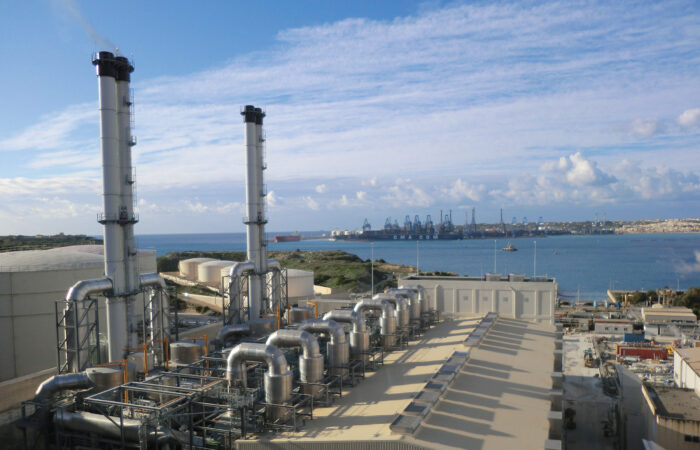Miranda Xafa*
In an international environment of great turmoil and rapid change over the past year, Greece has stood out as a pole of political and economic stability in the wider region. Europe’s malaise is deepening as many countries face large budget deficits and low growth rates. Governments have collapsed in Germany and France, leaving Europe without political leadership. Rapid developments in the Middle East, with Israel’s operations in Gaza and Lebanon against Hamas and Hezbollah and the collapse of the Al-Assad regime in Syria, show that we are living in times of intense geopolitical and political volatility. At the same time, the war in Ukraine is at a critical juncture, while President Trump’s return to the American presidency is a source of uncertainty for Europe and the world. Trade wars and political paralysis are the two biggest threats to the eurozone in 2025.
Despite the headwinds, Greece’s macroeconomic outlook looks brighter than that of the Eurozone in 2025, mainly for circumstantial reasons. First, Greece’s relatively large share of the Recovery and Resilience Fund (RRF) is expected to support economic activity until 2026, as it amounts to 4.5% of the total, more than double Greece’s share of euro area GDP. Second, energy-intensive industries account for a small share of total output in Greece compared with northern European countries. The German economy has been in recession for the past two years, particularly affected by the lack of access to cheap natural gas from Russia. In contrast, the recovery of tourism after the COVID-19 pandemic is benefiting Greece and other southern European countries. The European Commission’s winter forecasts confirm the resilience of the Greek economy, estimating growth of 2.1-2.3% over the three-year period 2024-26, compared with just 0.8-1.6% for the euro area.
The IMF’s forecasts are similar but show Greece’s growth rate falling to 1.3% by the end of the decade, close to its potential rate of 1%. Behind the praise for strong growth and good fiscal performance in recent years lie significant challenges, as the latest OECD report on Greece points out. Greece remains a country with low productivity, dominated by too many small firms, a high dependence on tourism, a lack of investment in high technology, low labour force participation, an inefficient public administration and a complex tax system. Greece’s production model has not changed. Even with moderate growth rates, the current account deficit remains above 7% of GDP, reflecting a limited productive base that forces Greece to borrow abroad to cover the gap between its production and consumption. Foreign direct investment, which finances the deficit without resorting to borrowing, fell for the second consecutive year in 2024, while investment in real estate reached 62% of the total (9-month data).
As the Pissarides report points out, low productivity and inward orientation, which remain key features of the Greek economy, are interlinked and result from the inefficient functioning of public administration and institutions. These are the two areas where the Mitsotakis government has failed to deliver major reform. Greece has made the most progress in the European Union in recent years in digitising its public services, but the efficiency of the public sector remains relatively low. As more opportunities are lost, the relative position of the Greek economy deteriorates. Removing the bottlenecks to growth requires deep reforms, not marginal adjustments.
Interestingly, this year’s edition of the Economic Freedom Index, recently published by KEFIM in cooperation with the Canadian Fraser Institute, shows that our country ranks last in the EU and 70th out of 165 countries in terms of economic freedom, based on 2022 data. Our country ranks lower than most of the former communist dictatorships in Eastern Europe and is ranked 150th in terms of the size of the state. Factors that lower Greece’s score include high government consumption spending (mainly on wages), high transfers and subsidies (mainly pensions and the various passes), the high marginal tax rate on incomes above €40,000, and a very slow judiciary that makes it difficult to enforce contracts and property rights. The necessary reform of the judiciary is proceeding at a slow pace so as not to infringe on vested interests. The same applies to the need for expenditure restraint to create fiscal space for further tax cuts without jeopardising the fiscal balance. The budget for 2025 shows that without spending cuts, the primary surplus will remain stuck at around 2.5% of GDP. Inequality is not reduced by benefits, but by substantive reforms that increase labour productivity.
In the latest European Semester report, the European Commission for the first time included Greece among the 10 countries where the goal of social convergence is at risk. In 2025, the Commission intends to prepare a detailed report for each of these countries, which also include Bulgaria, Romania, Croatia, Hungary, Estonia, Lithuania, but also the relatively richer Spain, Italy and Luxembourg. Our country’s poor ranking is due to factors such as excessive housing costs, income inequality, unmet health needs and the ineffectiveness of social transfers, which leave a large proportion of the population (26%) at risk of poverty. Greece has lost precious time due to the misguided policies that led the country to bankruptcy and memoranda, and as a result the gap with the EU average income remains large despite the wage increases granted in recent years. Taking 2008 as the base year, per capita disposable income in 2023 is 81.6% compared to 111.1% in the EU.
An important challenge for 2025 is to improve the efficiency of the state apparatus and the judiciary. The practice of political parties filling vacant positions in the state apparatus must be stopped once and for all, and a true meritocracy must be established. The system of target setting, evaluation and bonuses for supervisors in the civil service, established by Law 4940/2022 and gradually phased in, is a first step. It covers some 250,000 employees in the wider public sector, excluding teachers, judges, nurses, doctors, police and military personnel. Without further improvements in transparency, evaluation and targeting across the public sector, the objective of attracting investment and raising productivity will be hard to meet.
The key concern is the convergence of Greek incomes with the European average. The increase in employment in recent years, and the easing of the burden on wage earners with the reduction in social security contributions, help but are not sufficient. The “tax wedge”, i.e. the difference between the net wage received by the employee and the cost to the firm that hires him or her, remains too high and discourages hiring. Despite gradual reductions, social security contributions remain high, and the tax scale is very progressive, with a top rate of 44% for incomes above €40,000, much lower than in other EU countries. With a cumulative inflation of 17% over the last three years, the non-indexation of the tax scale offsets the tax cuts announced by the government. KEFIM has proposed a flat tax, a proposal recently endorsed by the OECD. At the very least, the income threshold above, which the maximum tax rate of 44% applies, should be doubled to €80,000 in order to reduce the progressivity of the current tax scale, which makes it much more difficult to attract qualified and managerial staff to our country and exacerbates the already acute problem of brain drain. At the same time, the tax framework for capital allowances could provide greater incentives for investment, so that the country could increase the share of investment in GDP from the current 14% to closer to the European average of 22% and close the investment gap.
*Miranda Xafa is member of the Academic Board of the Centre for Liberal Studies (KEFIM).




